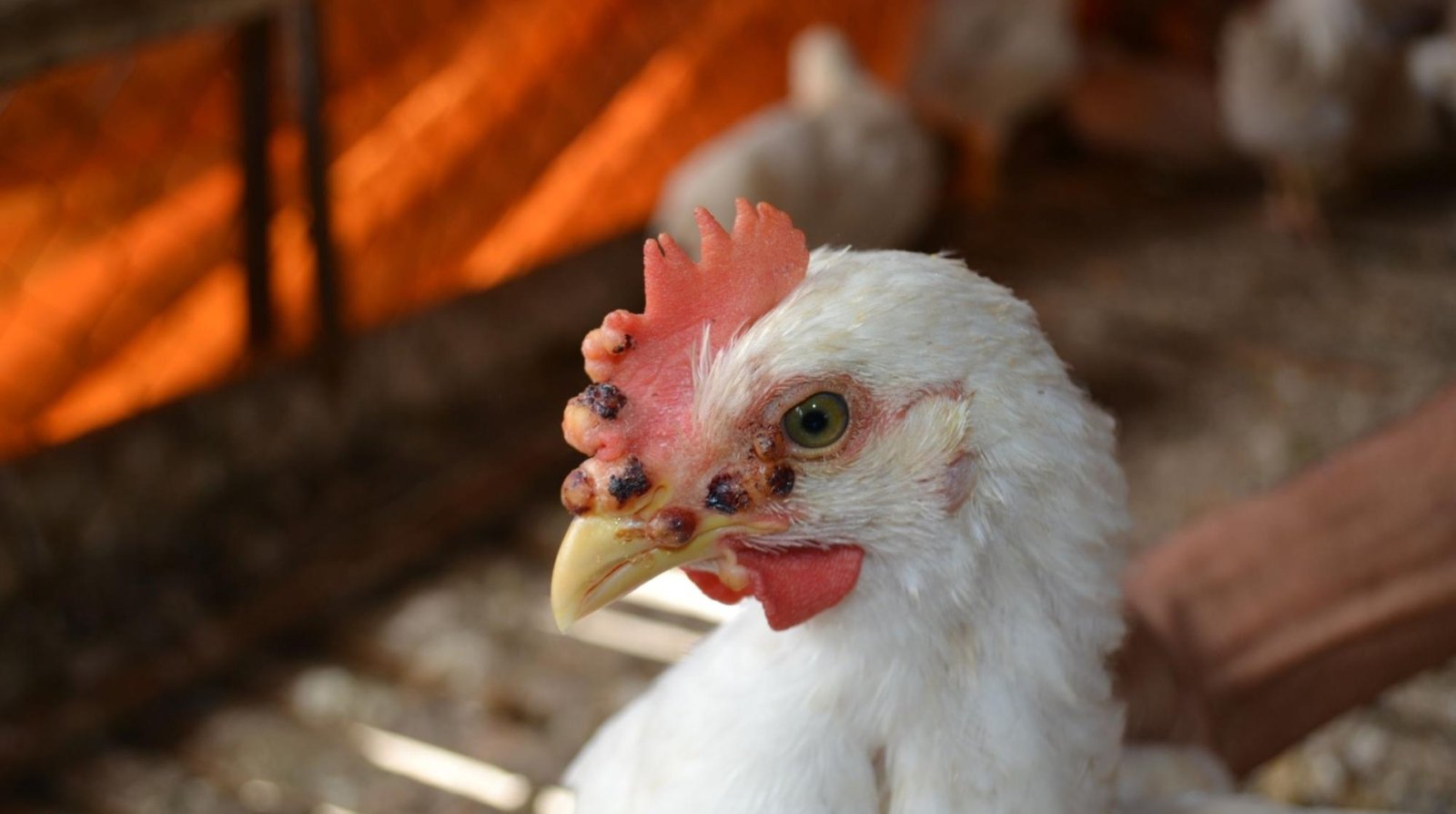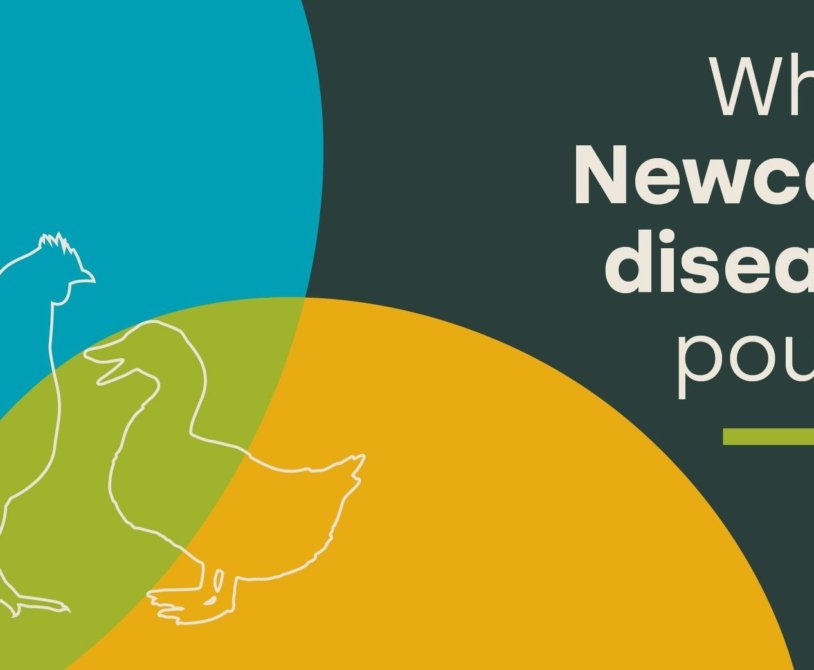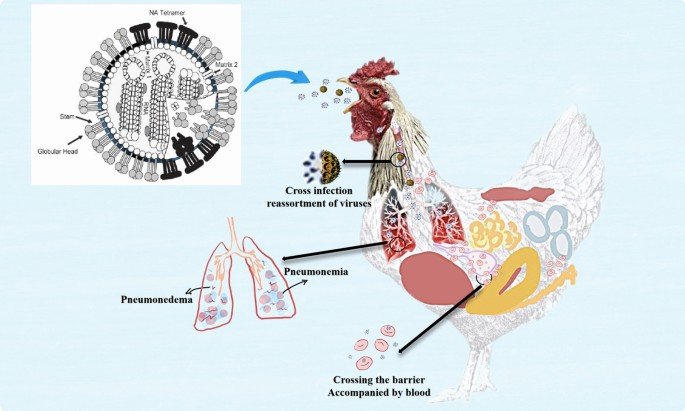Keeping your broiler chicken flock healthy and productive is key. Spotting disease early is vital. This guide will show you how to recognize disease signs in broiler chickens and what to do next. By being alert and quick to act, you can lessen disease outbreaks and keep your birds healthy.
Key Takeaways
- Recognizing the early signs of disease in broiler chickens is essential for maintaining flock health and productivity.
- Abnormal behavior, decreased feed intake, respiratory distress, and diarrhea are common early indicators of disease.
- Monitoring for feather discoloration and ruffling can also help identify potential health issues.
- Familiarizing yourself with the common diseases affecting broiler chickens, such as Avian Influenza, Newcastle Disease, Infectious Bronchitis, and Coccidiosis, can aid in early detection and prevention.
- Implementing an effective monitoring system is crucial for proactively addressing health concerns in your broiler chicken flock.
Understanding the Importance of Early Detection
Finding diseases early in broiler chickens is key to saving money and keeping the flock healthy. Quick action stops sickness from spreading, cuts down on treatment costs, and keeps production high. It also helps keep animal welfare standards high and supports ethical farming.
Economic Impact of Disease Outbreaks
Disease outbreaks in broiler chicken farms can hit producers hard financially. Spotting and fixing health issues early can save a lot of money. It lowers vet bills and keeps the farm profitable. Good disease management is vital for the farm’s future.
Implications for Animal Welfare
Spotting health problems early in broiler chickens is important for both money and animal care. Quick treatment and care for sick birds helps them feel better. It also keeps the whole flock healthy. This is key to keeping customers happy and the farm’s reputation strong.
| Metric | Value |
|---|---|
| Estimated annual economic losses due to disease outbreaks in the U.S. broiler industry | $3.2 billion |
| The percentage of broiler flocks affected by disease outbreaks annually | 20% |
| Average reduction in production efficiency due to disease-related issues | 12% |
“Early detection of disease in broiler chickens is not only crucial for economic reasons but also plays a vital role in ensuring animal welfare.”
Early Warning Signs of Disease in Broiler Chickens and How to Respond
It’s important to watch for early signs of disease in broiler chickens. This helps keep your flock healthy and happy. By spotting these signs early, you can act fast to protect your operation. Let’s look at the key signs and how to respond.
Abnormal Behavior
Keep an eye on your broiler chickens for any unusual behavior. Look for signs like being very tired, not wanting to play, or not moving much. These could mean they’re not feeling well.
Respiratory Distress
Watch for coughing, sneezing, or runny noses in your chickens. These are signs of respiratory problems. Catching these early can stop the disease from spreading.
Digestive Disturbances
Changes in droppings, like diarrhea or different colors, can mean digestive problems. Quick action can prevent bigger health issues.
By watching for these signs and acting fast, you can catch and treat diseases early. A good monitoring system and advice from vets can help keep your chickens healthy and productive.
| Early Warning Sign | Potential Underlying Condition | Recommended Response |
|---|---|---|
| Abnormal Behavior | Illness, stress, or environmental issues | Closely monitor the flock, assess environmental factors, and consult a veterinarian if necessary. |
| Respiratory Distress | Infectious respiratory diseases | Isolate affected birds, improve ventilation, and consult a veterinarian for appropriate treatment. |
| Digestive Disturbances | Gastrointestinal infections or nutritional imbalances | Adjust feed composition, provide appropriate supplements, and consult a veterinarian if the issue persists. |
Being proactive and quick to respond to health issues can greatly improve your chicken operation’s health and success.
Abnormal Behavior
Watching for changes in a broiler chicken’s behavior can show if they’re sick. Signs like being very tired, not moving much, and not wanting to be around others are often the first hints of trouble.
Lethargy and Inactivity
If broiler chickens seem lethargic and inactive, it’s a warning sign. Healthy chickens are always on the move, alert, and ready to explore. If they suddenly stop being active or don’t want to move, it could mean they’re sick.
Reduced Social Interaction
Broiler chickens love to be around each other. If they start to act differently, it could mean they’re not feeling well. Not talking as much, not wanting to play with others, or staying alone might be signs of illness.
Spotting these early signs can help farmers find and fix health problems in their chickens. This can save money and make sure the chickens are happy and healthy.
Decreased Feed Intake
In broiler chicken farming, a drop in feed intake often means a health issue is brewing. This is a key sign that should not be ignored. It tells us a lot about the health of our chickens.
Watching how much feed chickens eat is vital for keeping them healthy. If they eat less, it could mean they’re sick and need help fast.
Potential Causes of Decreased Feed Intake
- Viral infections, such as Avian Influenza or Newcastle Disease
- Bacterial infections, including Infectious Bronchitis or Coccidiosis
- Digestive disorders, such as malabsorption or gastrointestinal inflammation
- Environmental stressors, including changes in temperature, humidity, or air quality
Finding out why chickens eat less is key to fixing the problem. Talk to your vet to get the right help for your flock.
“Monitoring feed consumption is a critical component of maintaining the health and productivity of your broiler flock.”
By watching for changes in feed intake and acting quickly, we can protect our chickens. This helps keep them healthy and reduces the harm of diseases.
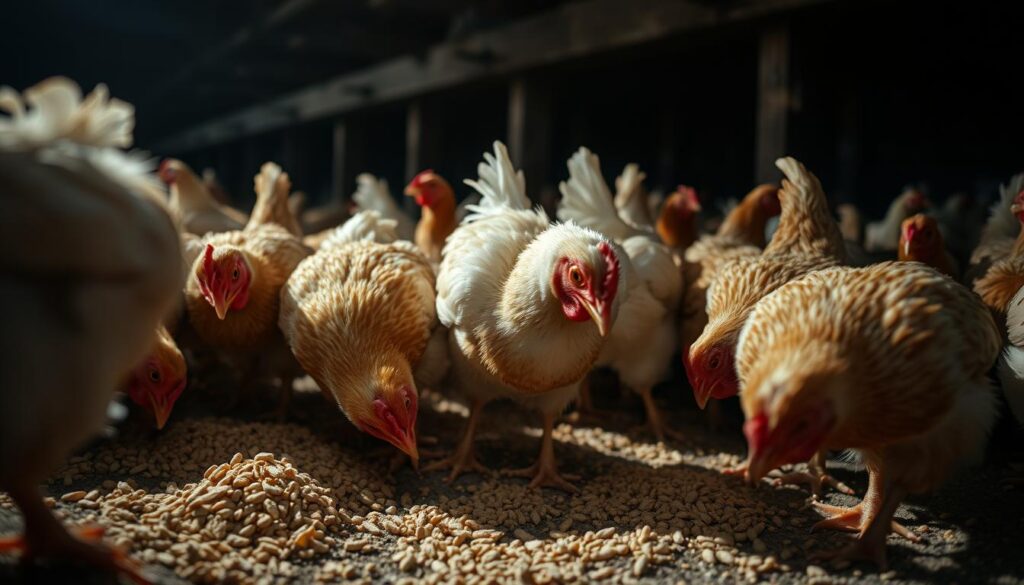
Respiratory Distress
Respiratory issues can be early warning signs of disease in broiler chickens. Recognizing and addressing respiratory distress, coughing, sneezing, and nasal discharge is key. This helps poultry farmers act fast to prevent outbreaks and keep their flocks healthy.
Coughing and Sneezing
Excessive coughing or sneezing in broiler chickens may signal respiratory infections like avian influenza or infectious bronchitis. These symptoms can result from irritation or inflammation in the bird’s respiratory tract. It’s important to watch for any changes in breathing or coughing and sneezing frequency.
Nasal Discharge
Abnormal nasal discharge, from clear to colored, can indicate respiratory problems in broiler chickens. Watery, thick, or discolored discharge may point to upper respiratory infections, sinusitis, or other diseases. Quick action to these signs can help prevent illness from spreading in the flock.
By staying alert and acting fast on respiratory issues, poultry farmers can protect their broiler chicken flocks’ health and well-being.
Diarrhea
Diarrhea is a common symptom in broiler chickens that can point to various diseases. As poultry farmers, it’s vital to quickly spot and treat this issue. This helps keep your flock healthy and happy. We’ll look into why diarrhea matters and how to handle it in your chicken operation.
Diarrhea in chickens can be caused by many things, like bacteria or parasites. It can make chickens dehydrated and affect how they absorb nutrients. Finding and fixing the cause of diarrhea is key to solving the problem and keeping your flock healthy.
Potential Causes of Diarrhea in Broiler Chickens
- Bacterial infections, such as salmonellosis or colibacillosis
- Viral infections, like coronavirus or rotavirus
- Parasitic infestations, including coccidiosis or histomoniasis
- Dietary imbalances or allergic reactions to certain feed ingredients
- Environmental stress factors, such as changes in temperature or humidity
When you see diarrhea in your chickens, watch them closely and get help from a vet. Quick action and the right treatment can lessen the effects of diarrhea. This helps stop the disease from spreading in your flock.
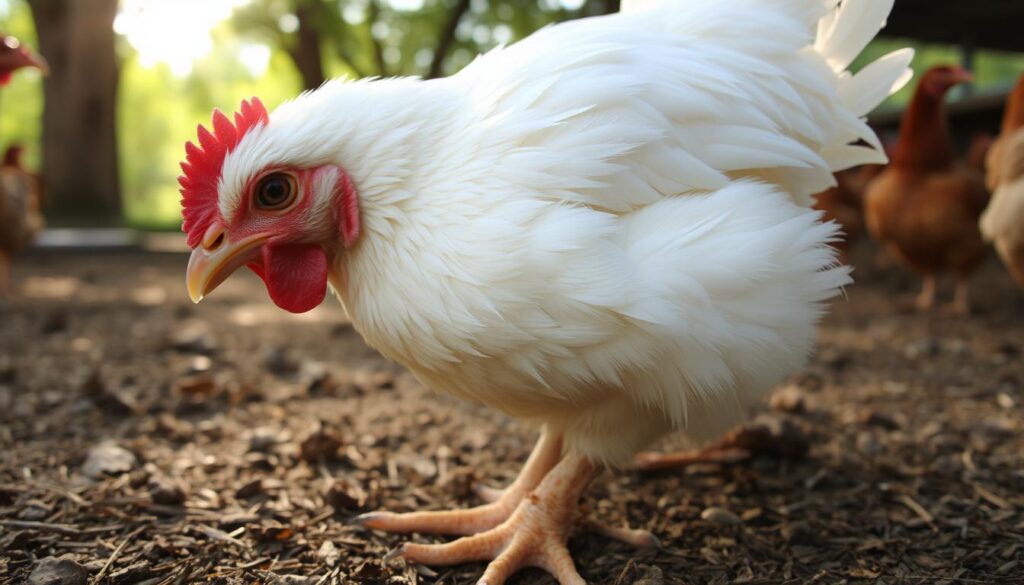
Remember, early detection and prompt action are key when it comes to managing diarrhea in broiler chickens. By staying alert and taking the right steps, you can protect your flock’s health and productivity. This ensures the well-being of your animals.
Feather Discoloration and Ruffling
Watching how broiler chickens’ feathers look can tell us a lot about their health. Feather discoloration and ruffling are signs that something might be wrong. They need us to look into them more closely.
When feathers lose their bright color or look odd, it could mean a few things. It might be because of bad nutrition, parasites, or serious diseases. Spotting these color changes early can help find the problem and fix it.
Feather ruffling means the feathers look messy or disheveled. It could mean the chickens are stressed or sick. Looking at how often and how badly the ruffling is can tell us a lot about their health.
By keeping an eye on the feathers and acting fast when they look off, we can prevent health problems. Catching issues early and acting quickly is important for a healthy and productive flock.
“Vigilant monitoring of feather quality is a critical component of effective broiler chicken health management.”
Common Diseases to Watch Out For
As broiler chicken farmers, it’s vital to watch out for health hazards. Four major diseases to monitor are Avian Influenza, Newcastle Disease, Infectious Bronchitis, and Coccidiosis. We’ll look at early signs and how to respond to each disease.
Avian Influenza
Avian Influenza, or “bird flu,” is a contagious viral infection. It can harm broiler chicken operations a lot. Look for signs like lethargy, less eating, and breathing problems like coughing.
It’s key to spot it early and act fast. This helps stop the disease from spreading and lessens its effects.
Newcastle Disease
Newcastle Disease is a fast-spreading disease in poultry. It causes nervous issues, diarrhea, and sudden death. Watch for signs like less activity, shaking, and greenish diarrhea.
Quickly finding and managing the disease is important. This helps keep your flock safe and healthy.
Infectious Bronchitis
Infectious Bronchitis is a contagious respiratory disease. It can hurt broiler chicken growth and production. Look for signs like breathing trouble, coughing, and eating less.
Acting fast and following strict biosecurity is crucial. This helps control the disease and keeps your business running smoothly.
Coccidiosis
Coccidiosis is a parasitic disease that can harm broiler chickens a lot. Look for signs like bloody or watery diarrhea, less eating, and poor weight gain.
Having a strong plan to prevent and control coccidiosis is key. This keeps your chickens healthy and productive.
By being alert and acting quickly, broiler chicken farmers can protect their flocks. This also helps keep their business profitable.
Implementing an Effective Monitoring System
To spot and tackle early signs of disease in broiler chickens, a good monitoring system is key. A strong monitoring plan lets poultry farmers tackle health issues early. This keeps their flock safe and healthy.
Watching your chickens closely is the heart of a good monitoring system. Look for any changes in how they act, look, or feel. Signs like being tired, not wanting to play, eating less, or breathing hard are early disease warnings.
Keeping detailed records is also vital. Write down any health or behavior changes you see. This helps spot patterns and trends. It’s also useful when working with vets to find the best treatments or prevention plans.
Working with vets is crucial for a complete monitoring system. Talking to your vet often gives you insights and advice. They help you understand early disease signs and what to do next. This teamwork ensures your chickens stay healthy and happy.
| Key Components of an Effective Monitoring System |
|---|
|
With a solid monitoring system, poultry farmers can stay one step ahead of diseases. This keeps their chickens healthy and safe. It also protects the farm’s economy and animal welfare from disease risks.
Recognizing and addressing early signs of disease in broiler chickens is key. It keeps your flock healthy and productive. Knowing signs like abnormal behavior and respiratory issues helps you act fast. This way, you protect your birds and reduce disease impact.
This guide has given you important info to keep your broiler chicken operation safe. Being alert and quick to respond to early warning signs of disease in broiler chickens, andknowing how to respond , is crucial. It ensures your flock’s well-being and your farm’s success.
Preventing disease and acting early are vital for a healthy broiler chicken operation. Using the insights from this article, you can fight off diseases. This helps the poultry industry stay strong for the long term.
FAQ
What are the early warning signs of disease in broiler chickens?
Early signs of disease in broiler chickens include odd behavior and less eating. They might also have trouble breathing, diarrhea, or changes in their feathers.
How can I identify signs of Avian Influenza in my broiler chickens?
Look for sudden drops in eating and drinking, breathing problems, and high death rates. Watch your flock closely and report any signs to your vet or local animal health authorities right away.
What should I do if I notice my broiler chickens displaying signs of Newcastle Disease?
If you see signs like breathing issues, nervous problems, or less egg laying, isolate the birds fast. Call your vet. Quick action and biosecurity are key to stopping the disease from spreading.
How can I recognize the early stages of infectious bronchitis in my broiler flock?
Look for coughing, sneezing, and runny noses. Birds might eat less and grow more slowly. If you see these signs, get your vet’s help for the right treatment.
What are the signs of coccidiosis in broiler chickens, and how should I respond?
Signs include bloody poop, less eating, and slow growth. If you see these, start strict biosecurity, treat the birds, and work with your vet to control the outbreak.


